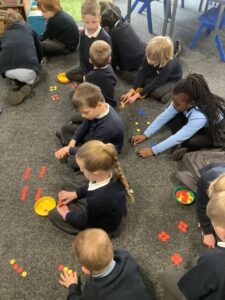We were delighted to welcome the children back to school this week to start our summer term. We hope you’ve had a happy and healthy break.
Here’s a look at what will be going on in our classroom:
English
In English, we’ll write a non-fiction report about a hero from history. We’ll read Amazing Grace by Mary Hoffman and dive into lots of interesting non-fiction texts.
Maths
In maths, we’ll learn about money, shape, length/height, stats and more!
Phonics – Spelling
We’ll continue our journey to becoming confident spellers…
Science
Science takes us back to plants, this time focusing on bulbs and seeds. We’ll plant some bulbs and observe them over time. We’ll also learn about sustainability and how we, as biologists, can support the wildlife in our environment.
Topic – History
This half term, we’re historians! We’ll learn about some heroes from history and the impact they’ve had on our society.
RE
How and why do some people pray? We’ll explore prayer across a range of world religions, linking to this half term’s Christian value, peace.
Living and Learning
We’ll learn about physical health: hygiene, sleep, diet, physical activity
PE
Throwing. Catching. Games. Exercise. Teamwork. Fun!
Help at home by keeping up the great work. Thanks for your all support so far this year – it’s had a huge impact. Please continue to use NumBots and Times Tables Rockstars, and listen to your child read every day.





















